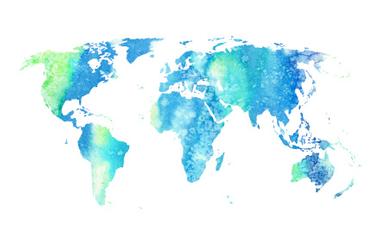This summer, 43 CEOs of British international development charities signed a statement on the anniversary of the racist riots in the UK declaring that “tackling racism […] means indeed questioning our very existence”.
As members of umbrella body Bond’s CEO Anti-Racism Group, there is no doubting the passion and commitment that underlies the statement. The CEOs “have found that anti-racist leadership requires courage and deep reflection”, and it is encouraging to observe the determination to explore and implement what anti-racism must mean for their sector.
Signatories include the chief executive of CAFOD, the official aid agency of the Catholic Church in England and Wales, and the CEOs of Oxfam GB and Christian Aid, of both of which I have been a supporter for many years, as well as Global Health Partnerships, of which I was part-time CEO for a few years.
I have also led two grant-giving foundations supporting the work of some of the other signatories. So to me, and I suspect many other supporters and donors, it raised an eyebrow to learn that their leaders are questioning publicly the very existence of these organisations whilst also soliciting our continuing donations.
Limitations and flaws
Note, first, that this anti-racist statement contains no mention of other areas of power imbalance and discrimination – patriarchy, class, heterosexism, disability - that hugely affect INGOs’ work internally and externally. It does not even use the word “intersectional” as shorthand to convey awareness of the importance of mutually reinforcing sources of injustice. To read the statement, you’d think that racism is the isolated cause of power imbalances and other flaws in past INGO culture and practice.
Secondly, the statement assumes that anti-racism and decolonisation are the same issue as a reshaping of power relationships in order to place the priorities and agency of the inhabitants at the heart of development. But they are not the same, because unequal power relationships may not have much to do with INGO racism in particular.
For example, arrogant planners in global north and south alike have routinely laid waste to the character and community requirements of the inhabitants, especially poorer inhabitants, without effective consultation. This is only sometimes anything to do with racism or colonialism.
Moreover, shifting power relationships has long been part of the advocacy and practice of significant parts of the INGO community for the sake of human solidarity, and to improve the effectiveness, accuracy and durability of aid efforts, without necessarily any specific link to anti-racism. The statement depicts “the sector” in recent decades as displaying “historical coherence” and generalises as if it were a monolith rather than one frequently arguing and diverging in practice within itself over issues of this kind.
Unfortunately, in many cases, the main obstacles to effective empowerment of marginalised groups in developing countries is not the soiled mindset of INGOs trying to commission and finance the empowerment but the entrenched attitudes and structures of intersectional discrimination in the independent developing countries themselves.
Thirdly, the statement assumes that INGOs are affected deeply by being the heirs of an imperial power, with its odious racial hierarchies, but there is no acknowledgement that they might also be the heirs of those who decried racism and colonialism.
Their own history as failure conditioned by racism
In this statement, the CEOs find absolutely nothing to celebrate in the past record of their organisations. The argument is that big change and contraction are coming, which is in many respects welcome.
The only bits of the past highlighted are regrettable failures conditioned by racism. It is anti-racism that points the way to a new dawn, where a more varied globally engaged UK civil society will emerge that “reimagines” its work “based on global solidarity, equitable relationships, mutual learning and collective action” as if none of that had been imagined before.
So, of great achievements in providing water and sanitation to impoverished and displaced people, millions of lives saved, far more women and girls receiving education and having their rights and needs recognised in humanitarian and development practice, fruitful professional partnerships and links across continents – no mention is made.
No mention of global campaigns by INGOs
Crucially, there is no mention of the campaigning record of many INGOs including those who signed the statement. There is nothing new about anti-racist campaigning based on a sense of global solidarity in close collaboration with overseas partners.
Oxfam and Christian Aid and their allies were very active, vocal leaders in the campaign against apartheid in South Africa, with the latter charity partnering with Martin Luther King and the civil rights movement.
Although the CEOs declare that “for too long, our sector has prioritised UK-based organisational and professional interests over those of local actors”, those two organisations among others took major organisational risks to defy the Charity Commission’s rulings that criticising apartheid was too political and should cease. Christian Aid took similar risks insisting on calling out the injustices perpetrated on Palestinians by Israel.
Similarly, it is inaccurate to imply that there is something new thanks to anti-racism about concern for “just relationships between nations”, as opposed to charity or aid. For decades, the agenda of campaigning by Oxfam, Christian Aid and many other signatories has clearly been based on solidarity, breaking apart the restrictive definitions of charity imposed by the Charity Commission in the 1980s.
INGOs have lambasted the unfair configuration of global trading rules for decades. They have campaigned for the writing off of debt by Western financial institutions. They have torn into the policies of the World Bank imposing destructive expenditure cuts on the governments of poorer countries. Tax justice has been another salient campaigning cause. Strong campaigns for climate justice have been part of the same justice mindset.
Although the CEOs say “we haven’t placed global solidarity at the centre of our work”, I would say that many key INGOs did exactly that. That is why many supporters including myself donated our money regularly to sustain them.
Other contestable self-criticisms
The CEOs say ”we have consistently failed to connect the poverty experienced in many parts of the UK with that faced by our international partners” but surely that was the rationale for Oxfam and Save the Children developing major UK programmes in parallel with their overseas work?
“We have misrepresented the lives of many people in poorer countries in our media, fundraising and campaigns,” they add. But Oxfam’s head of communications, Paddy Coulter, campaigned strongly against that misrepresentation in the 1980s onwards, and the debate within INGOs and gradual change in what is seen as acceptable images has gone on ever since.
The risks being taken by the 43 CEOs
The 43 CEOs are therefore taking some serious risks with this public statement.
There is a risk of further demoralisation within the organisations and particularly their supporters, already under strain. A charity that seems to disown its own past, to the point of questioning its own very existence, is at risk of alienating those who were under the impression that supporting them over many years was an act of global solidarity a blow in favour of global justice.
Every good charity needs to own its story as a core part of its identity, however substantial the course-corrections that any good charity will make in the light of evolving understanding and changing pressures and priorities within and without.
There are plenty of people, politicians and whole political parties who think that charity should begin and end at home, and who wouldn’t give a button for global solidarity or human suffering overseas.
Those forces have their tails up. They were happy or indifferent when aid budgets were pitilessly slashed and aid organisations trashed and slandered by Elon Musk and co. They will be only too pleased to have this apparent public confirmation right from the top that international development, including the work of INGOs, always was a flawed endeavour with nothing much to celebrate.
Related articles













